
Restaurants
Spa
Day Visits
Shop
Functions
16°C
September 2nd, 2023
We’re committed to recycling, reusing, and continually developing a more reducetarian lifestyle in all aspects of the farm. New developments in this field means that it’s an ongoing journey, and we remain dedicated to implementing these wherever possible.
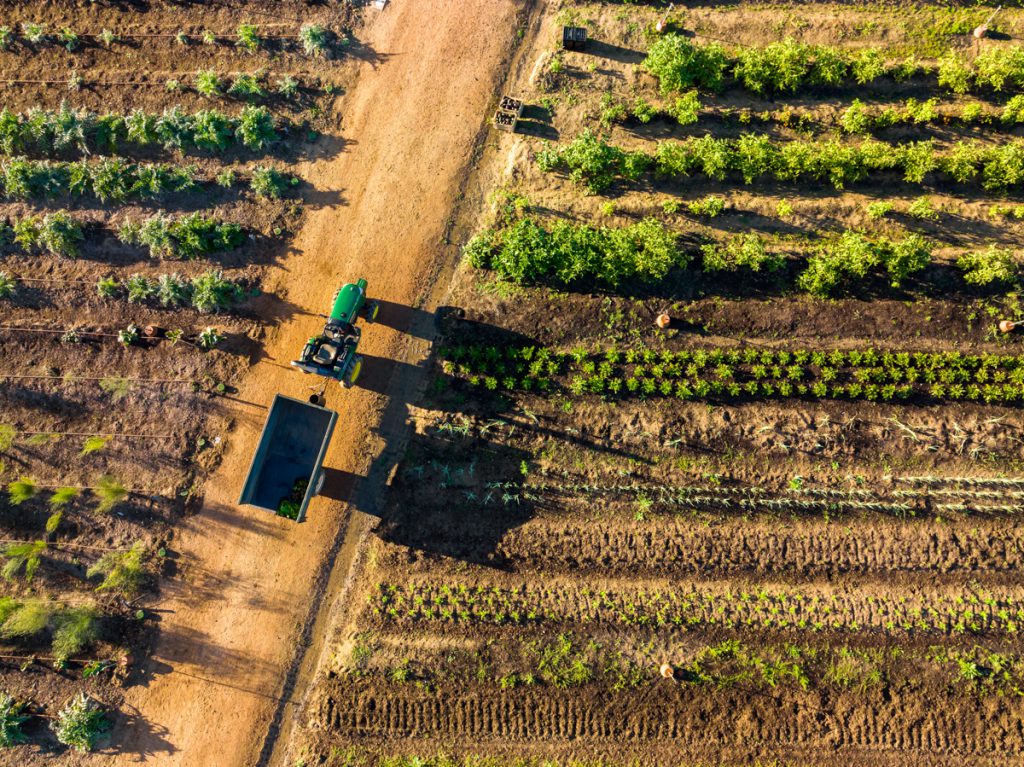
Some of our proudest accomplishments in going green include the implementation of solar power, with the ultimate goal of cutting our reliance on the national grid by 80%. We’ve also recently embarked on an intensive recycling process, which includes sorting through every bit of rubbish discarded on the farm. And that’s just the tip of the iceberg.
Plant waste material from production facilities at Babylonstoren is collected on a daily basis and repurposed as supplementary feed for our herds of water buffalo and Chianina cattle. “The fruits are very well received, especially by our water buffalo. However, they are not too fond of garden waste like flowers and leaves, and they dislike onions too,” says fruit production manager Didi Brink.
The waste from the Babylonstoren Blomkamer is composted along with all other garden waste like prunings and leaves. Our garden team has a large site with windrows where organic waste from our juicery, olive cellar, wine cellar and fruit and veg production areas are composted. This compost is used on the farm and in the garden, creating a full-circle composting cycle.
In the olive oil cellar, we use mechanically damaged olives to create our tapenades. Olive oil waste is also collected and used in the onsite Scented Room to make luxurious, 70% olive oil soap. The olive pomace (waste remaining after oil has been extracted) is composted.
DID YOU KNOW: We use a small amount of apple waste from the juicery in our apple waste sourdough bread that’s baked in the Babylonstoren bakery.
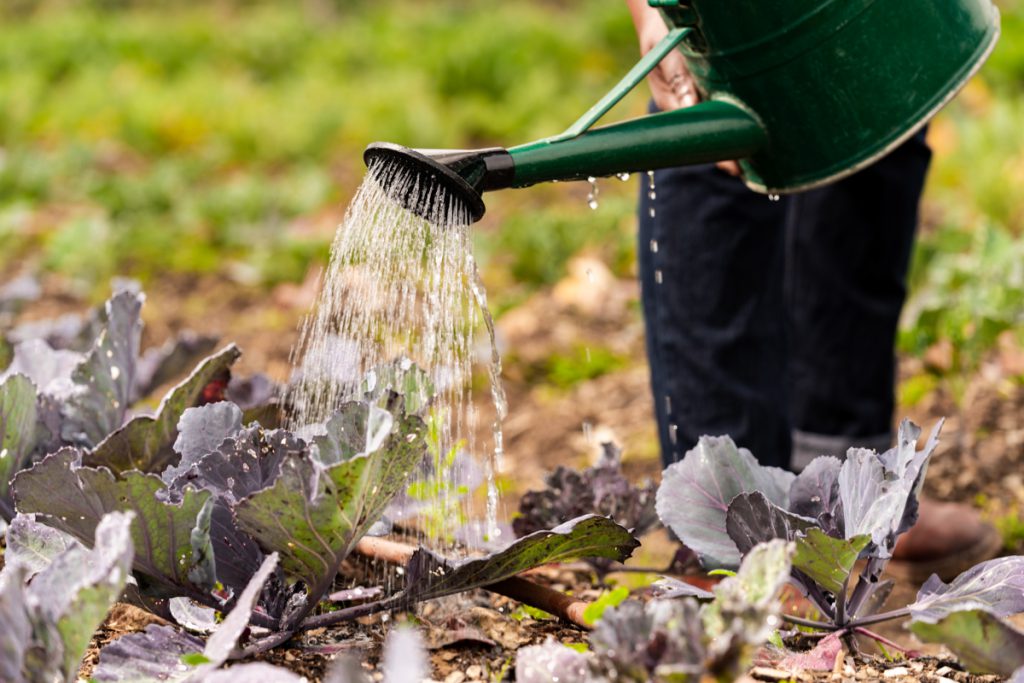
Waste from our restaurants and farm canteen is recycled via a bokashi system* that enables us to incorporate the bulk of the kitchen waste into our existing compost rows after a brief breakdown process. This system has been tested and works, but is not yet in continuous use.
*Bokashi composting is an anaerobic fermentation process that relies on inoculated bran to ferment kitchen waste (including meat and dairy) into a safe soil builder and nutrient-rich plant tea.
Since 2021, Babylonstoren has implemented a recycling system. The objective was to recycle materials from our production facilities and tourism departments including the cellar, distribution, storage, water factory, juicery, hotel and restaurants. For now, we are focused on three easily sorted recyclable materials namely glass, cardboard and plastic. Since January 2022, the average weight we recycle per month is as follows:
In July 2023, we started a partnership with Pandae Green Solutions to use their complete on-site waste management programme. This initiative entails that every piece of waste at Babylonstoren is collected and sorted; we physically collect every black bag, every rubbish bin and everything else that is discarded on Babylonstoren, and sort through the waste to identify all recyclable materials. These are then taken out and collected for recycling.
We have two goals with this programme. Firstly, we want to reduce the amount of waste we send to landfill by 50% by the end of 2023. Secondly, through the thorough sorting process, we can identify prominent waste products and those that cannot be recycled. The aim is to reduce and eventually eliminate such non-recyclable waste and to replace them with recyclable alternatives.
We’ve already made headway in switching to more sustainable packaging. Where possible, we use PLA cellophane as a plant-based plastic alternative. It’s made from natural starches derived from corn, sugar cane, straw or wood and is entirely compostable within 45 days – twice as fast as newspaper.
Our farm-made range of scented products is packaged in aluminium bottles. Aluminium is one of the most recycled and recyclable materials – it can be recycled indefinitely without losing any of its properties. Recycling saves 95% of the energy required to make the same amount of aluminium from its virgin source.
Water-saving mechanisms are engineered into our irrigation systems and interwoven with the everyday operations of the farm. This has reduced consumption by 50%. No municipal water is used, and we rely exclusively – and conservatively – on our borehole source.
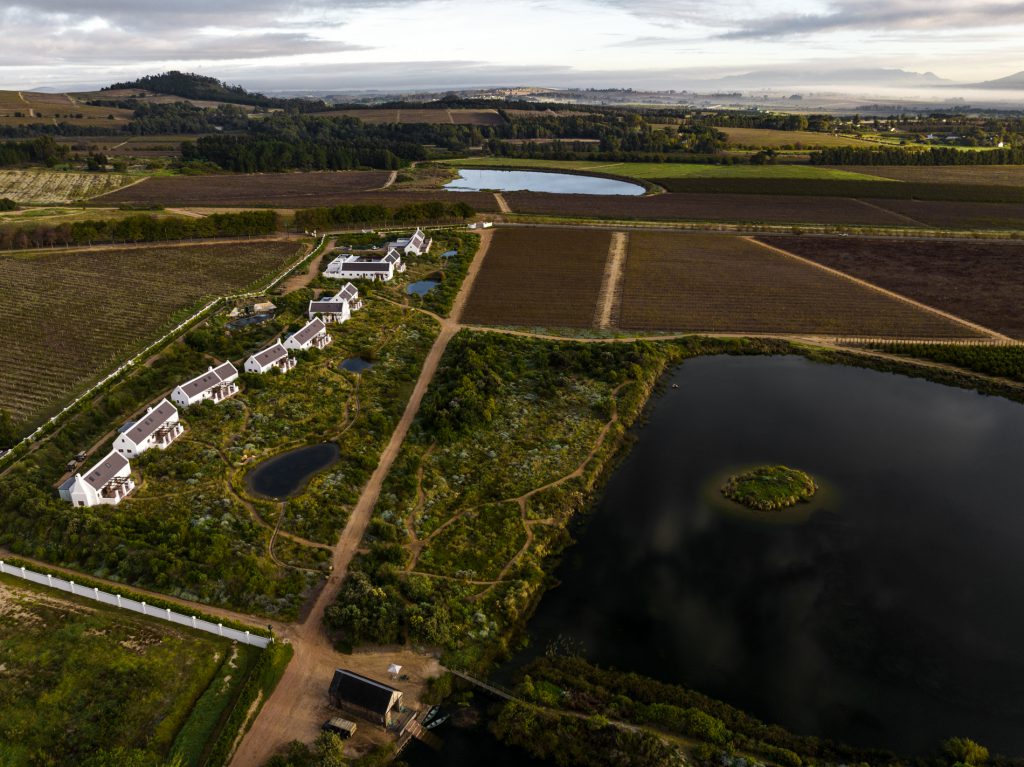
We are proud that all stormwater and wastewater from production on Babylonstoren is being reused for irrigation. All the water used in Babylonstoren’s processing plants is cleaned using an onsite bioreactor. After use, it is pumped back into the farm’s irrigation dam to be used for farming purposes.
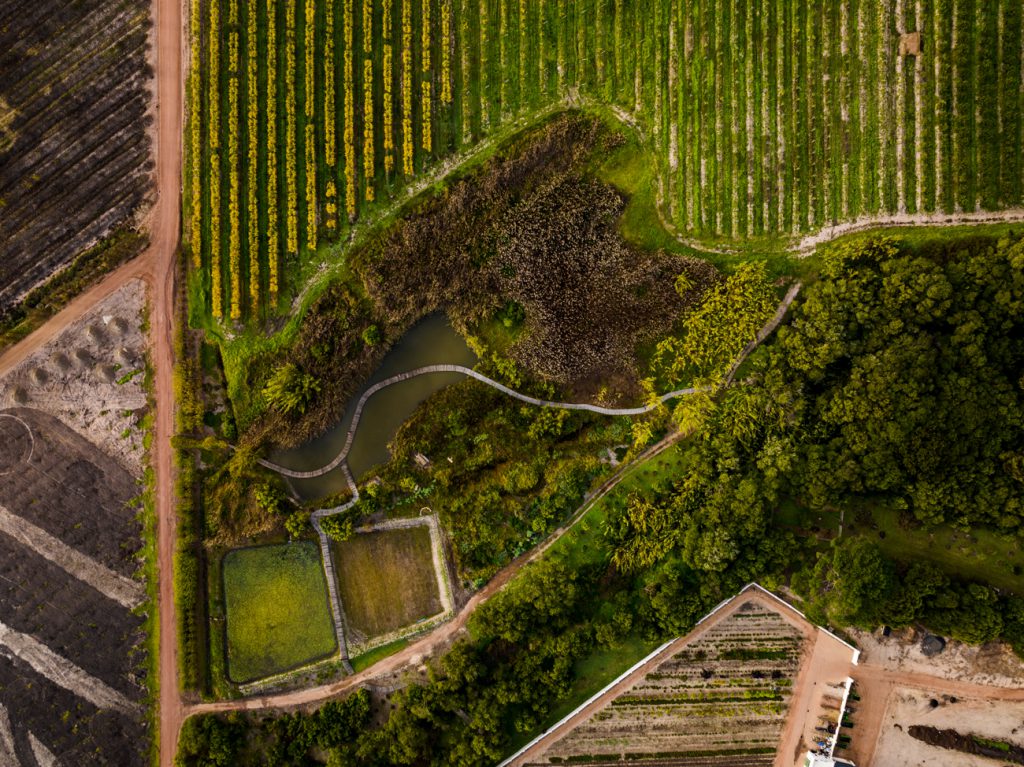
All the drinking and production water used in the various factories on the farm is extracted from our own boreholes.
On the farm we use glass bottles for water in our hospitality services and for employees. The glass bottles are reused weekly after going through a cleaning process. They are refilled on the farm from our borehole source.
We also have plastic water bottles for use in our shop and for our juicery. These bottles consist of 25–30% rPET, a form of recycled plastic.
Reliable and renewable energy is a sore topic, especially in South Africa, and we like to do our bit to lighten the load on fossil fuels. We are in the process of implementing solar power across the farm, with the ultimate goal of cutting our reliance on the national grid by 80%.
In 2022, we installed a 1056 m2 solar field to power all operations at our Vlaktestoor facility.
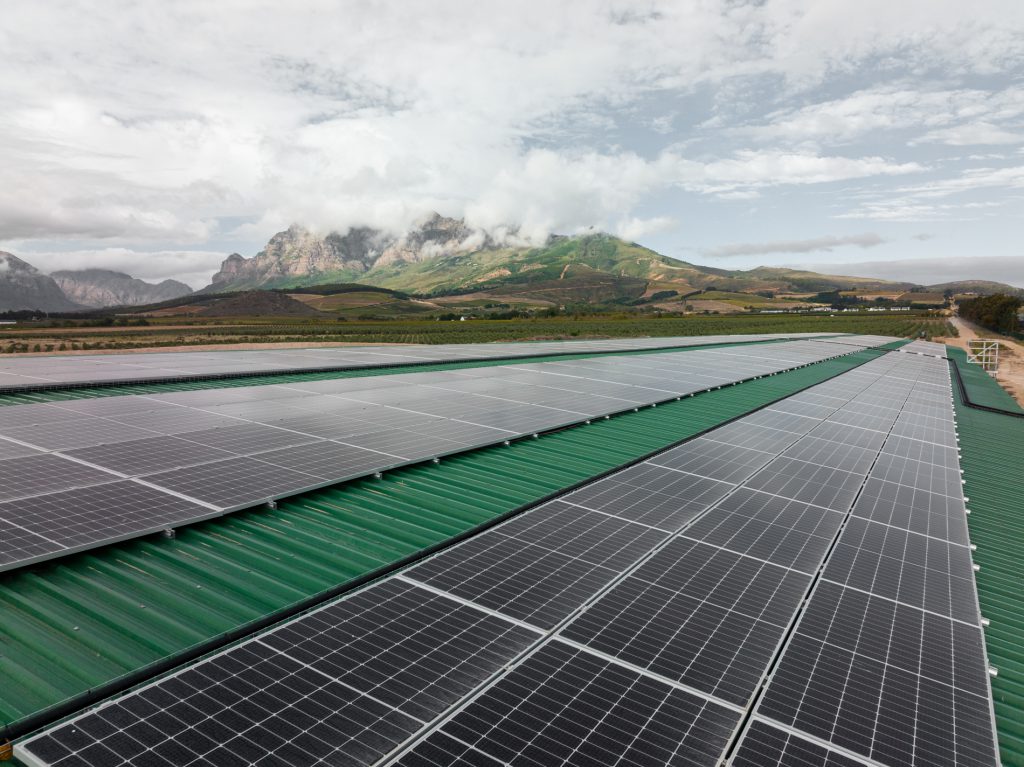
The 528 panels generate 240 kilowatt peak (kWp) – more than enough for all the energy needs of the warehouse. So far, it’s ensured that our hub with cold storage and packing facilities, where all online shop products are packed, is powered entirely by the sun.
According to Babylonstoren engineer Ebert Otto, the ultimate plan is to ramp up the solar energy output to close to 1 mVA, which will provide sustainable power for most operations on the farm.
“The switch will save us financially in the long run whilst providing our guests with uninterrupted energy, which will be harnessed sustainably from the abundant southern African sun. In addition, the solar plant will be able to help relieve some of the pressure on the struggling national grid.”